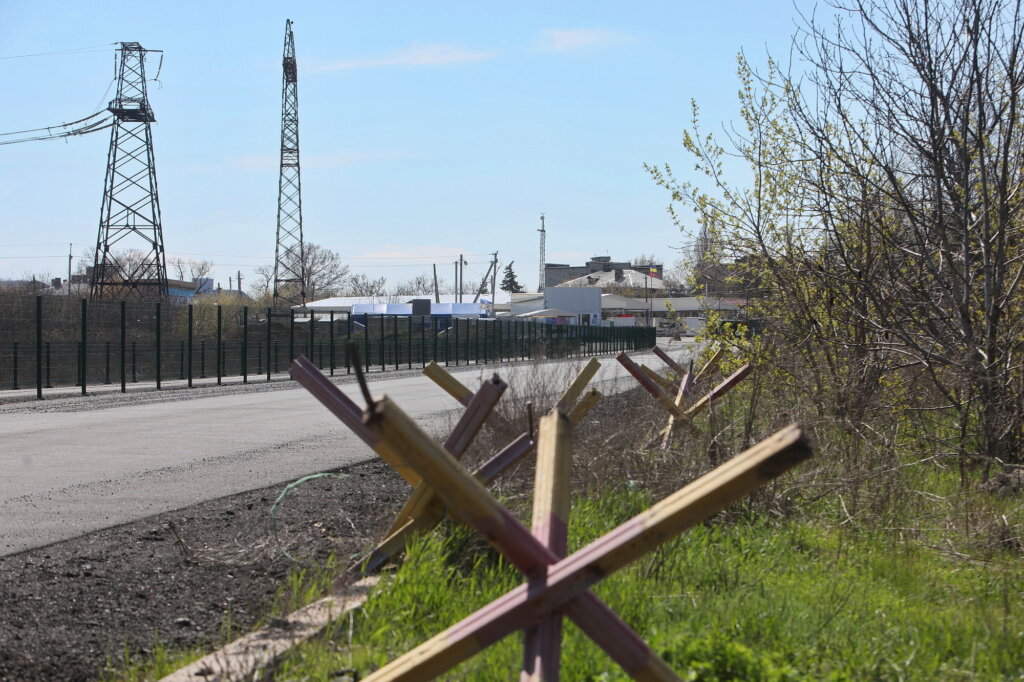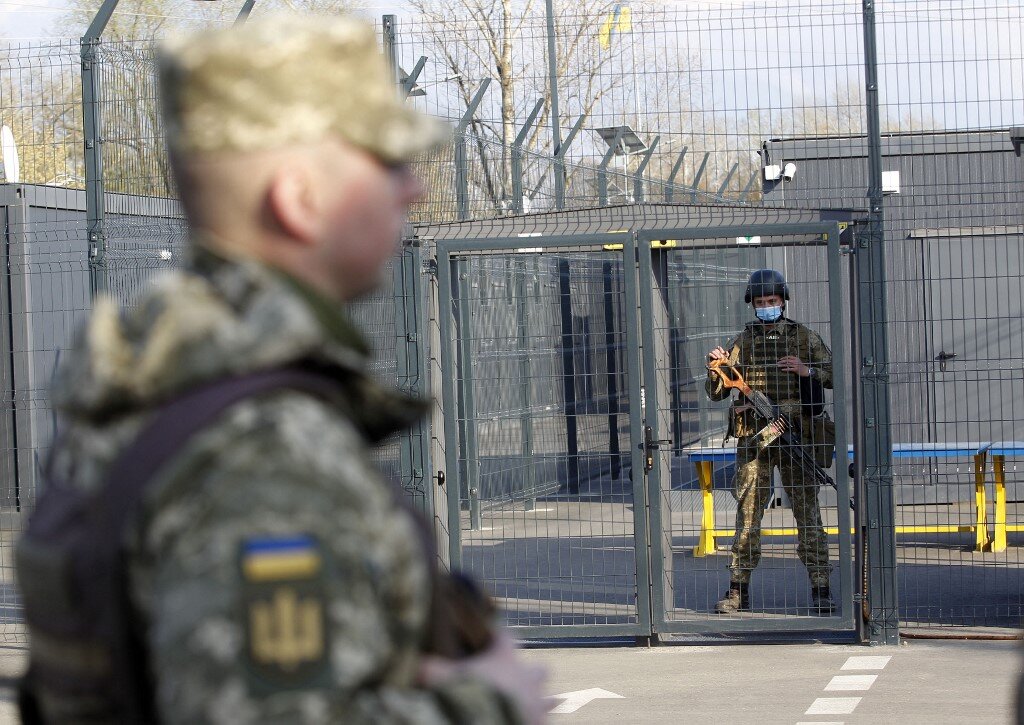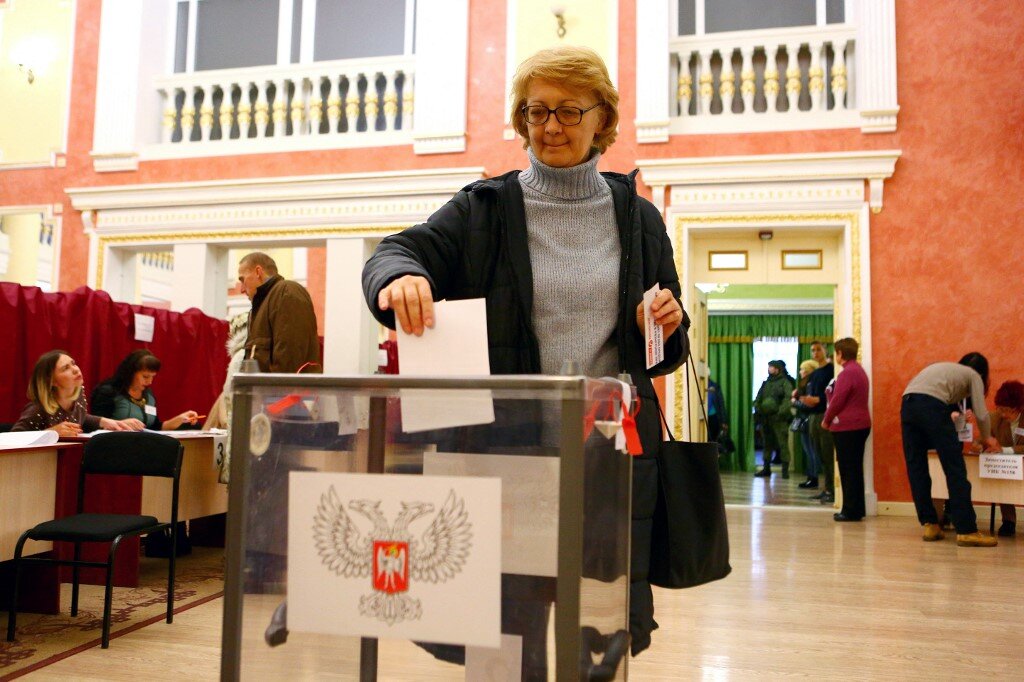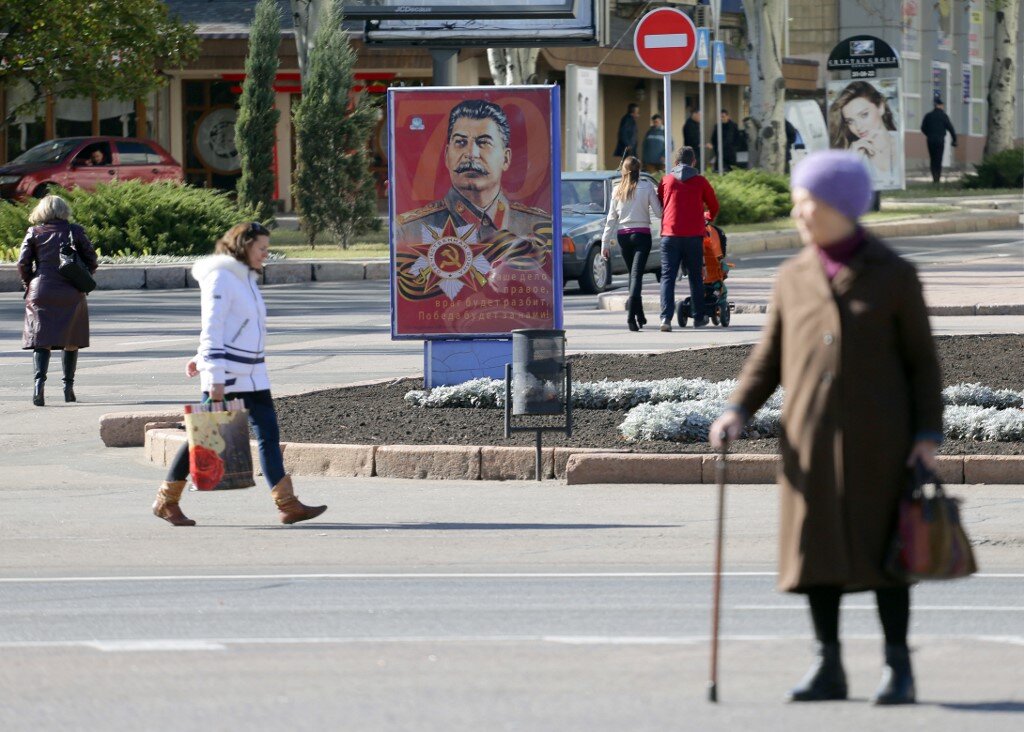Maksym, a resident of Donetsk, received his Russian passport in November 2020, a year and a half after Russia started handing out passports to the people living in occupied Donbas.
Now Maksym has three passports: one from Ukraine, one from Russia and one from the so-called “Donetsk People’s Republic,” the self-name of the Russia-controlled separatist authorities of the Donbas — obtaining it was required to get the Russian passport.
“The more passports the better,” Maksym joked before turning serious. “People do it out of despair. They just do not have another choice.”
Getting a Russian passport was a necessity for Maksym, who asked the Kyiv Post to not reveal his last name, fearing for his safety.
Over half a million people out of the roughly 3 million living in occupied territory have received Russian passports as of early May, according to Russian authorities.
Many of them did it in the past year.
The coronavirus pandemic and the occupation authorities have made it complicated to travel from the occupied Donbas to the Ukraine-controlled territories. Meanwhile, traveling to Russia remains easy. These circumstances often force Ukrainians in the occupied areas to seek Russian passports.
The Kremlin is very happy to provide them. The Russian authorities have already announced plans to bring the number of the Donbas residents with Russian passports to 1 million by the end of 2021. Ukraine does not recognize these passports and still considers Donbas residents who received them to be Ukrainian citizens.
Russia’s actions are the first step to the annexation of the Donbas, according to President Volodymyr Zelensky.
“This is certainly the first step because that is exactly what happened in Crimea. Crimean natives were given Russian passports. This is a big problem,” Zelensky said during his annual press conference on May 20.
Russia makes it easy
Maksym was one of those who received the Russian passport reluctantly.
His Ukrainian passport became invalid in 2016 when the photo fell out and he crookedly glued it back on. When that happens, Ukrainians are required to get a new passport. But to do so, Maksym would have to travel into Ukrainian-controlled territory and go to the nearest big city, something he kept putting off.
He hadn’t had a problem until 2019, when his passport attracted the attention of the Russian-backed separatists at a checkpoint. They suspected him of spying for Ukraine and questioned him.
After the incident, Maksym decided to fix his passport, but coronavirus travel restrictions made this much more complicated than getting a new one from Russia.
“No one would have wanted that Russian passport (if not for the travel difficulty),” he said. “In the past, when people needed to renew photos in their passports, they went (to the government-controlled side) no problem.”

Mayorsk checkpoint between the government-controlled and the separatist-controlled parts of the Donbas has been closed since March 2020 due to the coronavirus pandemic. Ukrainian authorities reopened it in November last year, however, the other side kept it close. The checkpoint is pictured on April 29, 2021, in Donetsk Oblast. (Volodymyr Petrov)
Five out of seven checkpoints between Ukraine-controlled and Russia-controlled parts of the Donbas are now closed. Both sides closed them in March 2020 to curb the spread of coronavirus. In November, Ukraine reopened them. However, the authorities of the occupied areas have kept their checkpoints closed, using the pandemic as an excuse.
Only two checkpoints remain open in both directions, Stanytsia Luhanska in Luhansk Oblast and Novotroitske in Donetsk Oblast. The Novotroitske one is open twice a week. Access to both is frequently interrupted and people first have to apply for e-passes to be able to cross for Ukraine-controlled territory and prove that they have a good reason for travel.
Going to Ukraine-controlled territory from Donetsk legally, through these checkpoints, is complicated. Going through Russia is easier, but it’s expensive, time-consuming and against the law in Ukraine.
Entering Ukraine requires travelers either to quarantine for two weeks or do a PCR test on arrival and self-isolate until they get the result. Russia has lifted such restrictions for the residents of the occupied Donbas seeking to get Russian passports.
As a result, it’s quicker, cheaper, and simpler to get the documents done in Russia. So that’s what Maksym did.
Passports of desperation
In November last year, Maksym received a call from an officer of the local migration service who said that his Russian passport was approved and ready to pick up.
The officer booked him a seat in the bus that brought him to the neighboring Rostov-on-Don Oblast in Russia, about 200 kilometers to the southeast of Donetsk.
“We arrived at the migration service and they kept us in until they were ready. Then they called us one by one, handed over passports, and congratulated us,” Maksym said, adding that he was among over 400 people who also came from Donetsk to pick their Russian passports that day.
He simultaneously received international passports for himself and his two-year-old child. The bus brought him home the very same day.

Ukrainian servicemen stand guard at a checkpoint with Russia-backed separatists near Schastya, Lugansk Oblast on April 16, 2021. (AFP)
The same trip to Ukraine via Russia would have cost him at least four times as much, Maksym said, and he would have had to pay a fine from Hr 1,700 to Hr 3,400. Ukraine’s laws forbid crossing the border from occupied Donbas since Ukraine does not control it.
“Unfortunately, the legislation effective today holds people accountable for going from the occupied Donbas to Russia to enter Ukraine from there. After they’re fined a few times by the State Border Service, they think ‘What else can I do, but to get a Russian passport?,’” said Vira Yastrebova, a human rights activist and Director of the Eastern Human Rights Group, a non-profit organization.
Since the beginning of the year, the NGO filed over 240 lawsuits challenging fines imposed on people from the occupied Donbas who entered Ukraine through Russia.
In April, lawmakers drafted a bill that would get rid of the fines.
“We are discussing the possibility of releasing from fines the citizens of Ukraine who cross the border illegally from the temporarily occupied territories during the pandemic,” Ihor Yaremenko, deputy Minister for Reintegration of the Temporary Occupied Territories, told the Kyiv Post.
“This proposal from the government to, say, turn a blind eye to the violation of the order is understandable from the human point of view and I support it, but from the state point of view, this sends the wrong message. This means that some can break the law and some cannot,” he added.
Russian-sponsored militants keep the checkpoints closed for a reason, Yastrebova said.
“By doing this they, in fact, deliberately break connections between the occupied Donbas and the Ukraine-controlled territory,” she said. “People living in the Donbas became hostages.”
According to human rights activists, Kremlin authorities are taking advantage of the situation to issue as many passports as possible.
One of the goals Russia pursues is to attract more votes at upcoming September elections to Russia’s State Duma, one of the chambers of the country’s parliament with 450 mandates, the experts told the Kyiv Post.
Steps by the Kremlin such as organizing illegitimate elections and issuing passports to locals are “aimed at de facto integration of Ukraine’s non-governmental-controlled areas into Russia,” according to the document the EU shared with member states in mid-May seen by Bloomberg.
More passports, more voters
Russia is not hiding the fact that it is about to give voting rights to residents of occupied Donbas with Russian passports.
“These 500,000 people (in the occupied Donbas) who have taken Russian citizenship will participate in the elections to the State Duma,” Andrey Turchak, the Secretary of the General Council of United Russia, the country’s ruling party, told Russian journalists on May 10.
Turchak, however, did not elaborate on how they would organize it. The Russian authorities reportedly considered bringing voters from the Donbas to Rostov-on-Don in Russia.
In fact, Russia has already decided to open polling stations in the occupied Donbas, the Eastern Human Rights Group revealed on May 10, citing its sources. This would be a breach of the Minsk Protocols, the peace agreements between Ukraine and Russia.

A woman casts her ballot at a polling station in Donetsk, in the area in eastern Ukraine controlled by Russia-backed separatists as they choose their new leaders on November 11, 2018, despite Western calls on Moscow not to sabotage peace talks. (AFP)
United Russia’s Turchak and fellow lawmakers visited the occupied Donbas on May 10 to take part in the celebration of the so-called republic day, when Donetsk broke away from Ukraine with Russia’s assistance, websites run by unrecognized Donetsk officials reported.
In his interviews with local media, Turchak said that United Russia will help to open playgrounds and give computers to schools of the occupied Donbas.
Ukraine’s Foreign Ministry condemned the Russian lawmakers’ visit calling it a “Russian election campaign” on the eve of the September vote.
“The trip vividly illustrates the decline in support for United Russia among the Russian population, which the pro-government Russian party is now trying to compensate by involving residents of Ukraine’s temporarily occupied territories in the vote,” the Ministry’s statement reads.
“The participation of Ukrainian citizens with Russian passports imposed by the occupation administration in the elections to Russia’s State Duma will call into question their legitimacy.”

People walk past a portrait of Soviet dictator Josef Stalin on an advertising board, in Donetsk, on October 17, 2015. Three Stalin portraits hang in the center of Donetsk, the main city held by pro-Russian separatists in eastern Ukraine, where a mood of nostalgia for the Soviet era is all-pervasive. (AFP)
This creates “endless possibilities for falsifications,” believes Oleh Saakian, a political expert and a cofounder of Dialogue For Peace And Safe Reintegration discussion platform.
“This distribution of passports is also an increase in the electoral base for specifically the ruling power. Only the Kremlin authorities will know how many people actually voted in the occupied territories and how many were faked and who these people really wanted to vote for,” Saakian said.
“This way they can fake half a million to a million votes for particular political parties,” he said, adding that those political projects are run by veterans of Russia’s war against Ukraine.
Among them is A Just Russia – Patriots – For Truth, a political force led by Zakhar Prilepin, a Russian writer and a militant who fought against Ukraine’s army in the Donbas. Another one is Donbas Union of Volunteers, led by Russian native Alexander Borodai, a former separatist leader in the Donbas. His Union has signed a cooperation agreement with United Russia to run for elections to the county’s State Duma together.
“Do we need these elections or don’t we — I cannot understand,” said Maksym, the Donetsk resident.
He still might want to vote in the Russian election, he said.
“I mean someone might use my vote without my knowledge,” he added. “Why would anyone give up half a million votes, even if they are just fictitious.”
